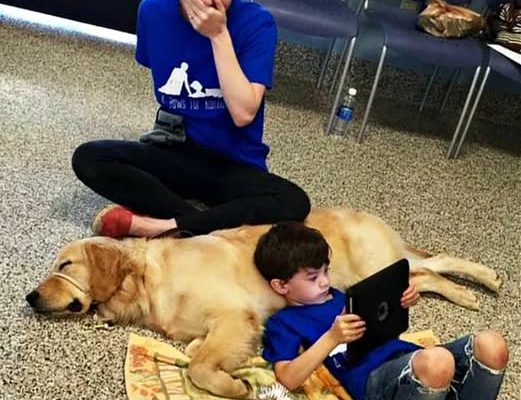In a quiet living room, a mother watches with tears as her 5-year-old son with autism cuddles his new service dog, Tornado. This moment is deeply moving because her son, who once struggled with touch and connection, now finds comfort in the dog’s presence. This bond shows the incredible healing power service animals have for children with autism.
Autism affects how children communicate and connect, often making physical touch overwhelming. Many children with autism feel isolated, which can be hard for both them and their families. Service dogs like Tornado provide emotional support, comfort, and companionship without the pressure of human social expectations.
These dogs help children experience safe physical contact, reduce anxiety, and develop social skills. They also encourage independence by assisting with daily tasks. Tornado’s presence is helping this boy build trust, affection, and connection—things that were once difficult for him.

Service dogs undergo special training to assist children with autism by recognizing distress, preventing dangerous behaviors, and offering emotional support. Research shows that these dogs can improve social skills, reduce anxiety, and increase independence for autistic children.

While not a cure, service dogs are a valuable tool in autism therapy, bringing hope and healing to families. Organizations are working to make these dogs more accessible despite the high costs of training.

The story of the boy and Tornado illustrates the powerful role service animals play in transforming lives—offering connection, trust, and love. Through their companionship, these dogs help children with autism navigate their world with greater confidence and joy.



